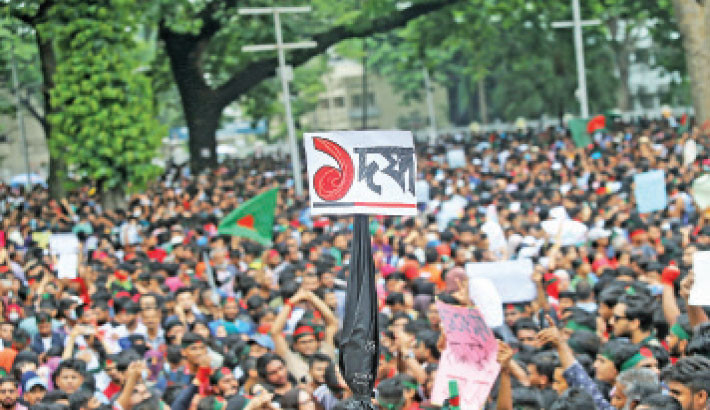
Some of Sheikh Hasina’s economic policies were in the country’s interest, but her greatest weakness lay in her persistent efforts to sideline the opposition. A so-called “pet opposition” was maintained in parliament, which was expected to appeal to the public, while constitutional institutions were manipulated to entrench her power. As a result, these institutions ceased to function effectively. Consequently, she became increasingly reliant on the civil-military bureaucracy, marginalising politicians and no longer heeding their counsel.
This excessive dependence on bureaucratic apparatuses ultimately encouraged her to pursue gross violations of human rights and introduce repressive laws like the Digital Security Act, designed to suppress freedom of expression and establish a climate of fear throughout the country. State organisations also became complicit in building a one-sided Bangladesh. Institutions such as the DGFI, originally formed to deal with national security matters, became tools for prolonging Sheikh Hasina’s rule. In short, hers was an authoritarian regime. Everything revolved around her. She was the final authority on all decisions. The nation became deeply reliant on one party and one leader, as she corrupted the entire political landscape.
This political authoritarianism gave rise to social, economic, and cultural authoritarianism, destroying the equilibrium in all spheres. For example, construction-related contracts at universities were awarded exclusively to members of the ruling party or those close to them. There were no opportunities for others. This is an example drawn from my own surroundings. Undoubtedly, the picture was similar or worse across the country.
The manner in which Sheikh Hasina rigged three elections – in 2014, 2018, and 2024 – merely to secure her hold on power by exploiting the democratic framework, leaves little else to be said to characterise her rule. When political authoritarianism persists in a country, it inevitably leads to fascism.
Some may ask what the intellectuals did during this period – whether they played their role or not. The answer is: no, they could not take a stand. Sheikh Hasina gradually built a clientele network over the years. Her position in 2009 and in 2024 was markedly different. When making appointments to top posts in every institution, she chose only those loyal to her. This sent a clear message: if someone supported the government consistently, they could expect similar positions. Universities, for example, began to function like extensions of the Awami League government. If anyone expressed dissent, their promotion or other entitlements were obstructed systematically. In such an environment, criticising the government was not easy.
Prof Rehman Sobhan, widely regarded as one of the country’s most respected public intellectuals, openly stated that he was unable to express what he truly thought. If he said this, one can easily imagine the condition of others. Moreover, if you analyse history, it becomes clear that when political authoritarianism takes hold, even groups of professionals or intellectuals are unable to make a meaningful impact – regardless of their intentions. Transformative change only occurs when ordinary people rise up and confront such regimes through mass uprisings. That is exactly what happened to Sheikh Hasina in 2024. And it was inevitable.
________________________________________
The writer teaches Political Science at Dhaka University and General Secretary, Bangladesh Political Science Network

